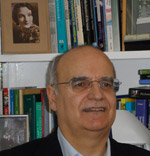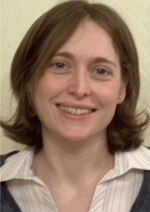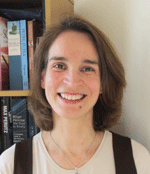Oxford University
Edward Melhuish

Professor
Department of Education
University of Oxford
E-mail: edward.melhuish@education.ox.ac.uk
Edward Melhuish is a Research Professor at the University of Oxford and Birkbeck, University of London. He has undertaken research in 12 countries, and is currently undertaking new government-funded large-scale longitudinal studies in Norway and the UK, involving family, community and pre-school influences on child development, and policy implications. Previous work influenced several UK acts of parliament. He has served as an expert witness to several House of Commons Select Committees, and is a member of a Child Well-being working group of WHO, and the Human Capital and Economic Opportunity Working Group Early Childhood Interventions Group, 2012.
With over 200 publications. he has contributed to discussions of social policy for children in Norway, Germany, Netherlands, Belgium, Finland, Portugal, Australia, Korea, Chile, European Commission, OECD and WHO. He has been a scientific advisor to overseas research funding bodies: NWO (Netherlands Organisation for Scientific Research); Academy of Finland; Nordic Research Councils for Humanities and Social Sciences; Portuguese Research Council (FCT); European Commission; Australian Research Council; Deutsche Forschungsgemeinschaft (German Research Council). He undertakes substantial pro bono work for charities involved with child well-being.
Edward Melhuish on the CARE review on the effects of ECEC on child development:
Katharina Ereky-Stevens

Dr.
Department of Education
University of Oxford
15 Norham Gardens, Oxford OX2 6PY
E-mail: katharina.ereky@education.ox.ac.uk
Katharina Ereky-Stevens, DPhil is a researcher at the Department of Education at the University of Oxford. She is part of the Families, Effective Learning and Literacy (FELL) research group. Her main research interests are the quality of early years education and care, child–caregiver interactions, and the relationship between ECEC quality and children’s development. She has worked on a number of research projects on early childhood education, including the Families, Children and Childcare project (FCCC), the Effective Pre-School, Primary and Secondary Education project, and a Viennese Transition to Childcare project. She was involved in writing a number of research reviews, including a recent Sutton Trust review of the research on quality of Early Childhood Education and Care for children under three, and implications for policy and practice. She has published in international and national journals.
Ana-Maria Aricescu

Researcher
Department of Education
University of Oxford
15 Norham Gardens, Oxford OX2 6PY
Phone number: 01865 274043
E-mail: anamaria.aricescu@education.ox.ac.uk
Ana-Maria is a researcher at the University of Oxford, Department of Education. She is part of the Families, Effective Learning and Literacy (FELL) research group. She has been involved in various research projects, including Families, Children and Childcare (FCC), Quality of Childcare in the Millennium Cohort Study, Evaluation of the Two Year Olds Pilot, National Evaluation of the Graduate Leader Fund, Evaluation of Children’s Centres in England. She has also worked on a randomised controlled trial to evaluate a parenting programme aimed at supporting their children’s reading and behaviour at home. Her research interests concern quality of early years education and care, relationship between quality and children’s development, child-caregiver interactions, parenting programmes/interventions. Alongside her work at the University of Oxford, she has been supporting local authorities and early years practitioners in improving childcare quality using the Environment Rating Scales (ECERS-R, ECERS-E, ITERS).
Kathy Sylva
Professor
E-mail: kathy.sylva@education.ox.ac.uk
Kathy Sylva is Professor of Educational Psychology at the University of Oxford, Department of Education. Originally from the US, where she earned her PhD at Harvard University, Kathy moved to the UK in the 1980s. She has carried out many large scale studies on the effects of Early Childhood Education and Care on children’s development. She also studies ways to support early literacy through school- and home-based programmes. She has been a lead researcher on the Effective Pre-school, Primary and Secondary Education study (EPPE/EPPSE), and on the evaluations of the Graduate Leader Fund and Reading Recovery. She is co-leader of a randomised controlled trial to evaluate a parenting programme aimed at supporting their children’s reading and behaviour at home. She has published 7 books and more than 100 papers, most on early childhood, early literacy, and ways to support families. A dominant theme throughout her work has been the impact of education and care not only on ‘academic knowledge’ but on children’s behaviour and self-regulation. A related theme in her research is the impact of early intervention on combating social disadvantage in both developed and developing countries. She has been specialist adviser to the UK Parliament’s Select Committee on Education 2000-2009 and the government enquiry into phonics teaching. In 2005/06 she was an expert advisor to the Scottish National Parliament. . She was awarded an OBE in 2008 for services to children and families.
Pam Sammons
Professor
Pam Sammons is a Professor of Education at the Department of Education of the University of Oxford and a Senior Research fellow at Jesus College, Oxford. She has been involved in educational research for the last 30 years with a special focus on school effectiveness and improvement, early years, leadership and equity in education. She has a particular interest in the evaluation of education policy initiatives. Her research studies use multilevel analysis and mixed methods designs to study children’s cognitive and socio-emotional development and the role of child, family and institutional influences. She is a Principal Investigator on a major longitudinal study of effective pre-school, primary and secondary provision tracking children from age 3 to 14 years (EPPSE 3-14, 1996-2014) funded by the DfE, and led the analyses of children’s outcomes and developmental progress. She is also a Principal Investigator of the national evaluation of Children’s Centres in England funded by DfE (2009-2017) and leads the ‘impact’ strand of the research which is investigating the influence of Children’s Centres on young children’s developmental progress (age 1 to 7 years), and on outcomes for families and parents. She was an expert member of the DCSF Value Added Methodology Advisory Group (2002-2004) studying school performance data, the Rose Review on the teaching of early reading, including the role of synthetic phonics, 2005-2006. She conducted analyses and prepared a report for the Cabinet Office Equalities Review (2006), and the Government Science Office Review of the Department for Children, Schools and Families use of evidence to inform policy (2010). She was an Expert member of the OECD review of Evaluation and Assessment Country Report for the Czech Republic (2011-2012). She is a member of the Higher Education Academy and a Fellow of the Royal Society of Arts. She has an extensive range of publications in academic journals, books, reports and policy briefings.
Ingrid Pramling Samuelsson
Professor
Ingrid Pramling Samuelsson is professor in Early Childhood Education at University of Gothenburg. She also holds a UNESCO chair in ECE and Sustainable Development, and is the World President of OMEP (Organisation Mondiale Pour l´Éducation Préscolaire), which is a global organisation for preschool education with representatives from 73 different countries. Her research areas are; young children’s learning, meta-cognition, Nordic preschool didactics within many different field (early literacy, mathematics, science, aesthetics etc.), professional development and curriculum questions. She has been both the leader and participants of many research projects, national as well as international. She has published many publication, scientific and more popular scientific book for teachers, and has worked in scientific committees, for governments in the Nordic countries, the agency for school improvement and other authorities. She is the scientific leader of the largest research group in the area of ECE in Sweden. Professor Samuelson will contribute to this project as member of the Oxford team, especially to WP2, and will be employed by the University of Oxford for her participation in the CARE project.